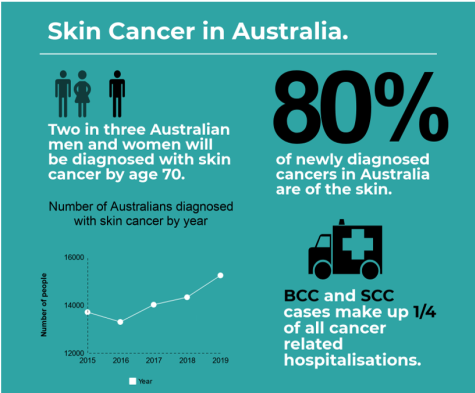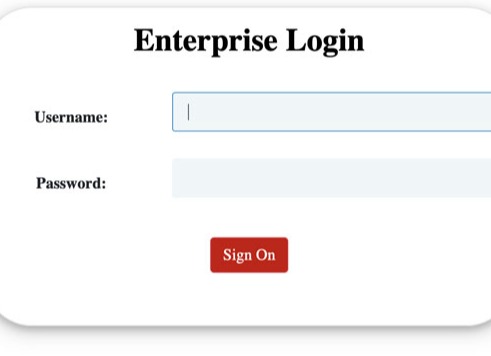What is a colonoscopy?
A colonoscopy is a medical procedure in which a doctor uses a long, flexible tube fitted with a tiny camera (called a colonoscope) to look inside your large intestine (the colon) and the end part of the small intestine (in some cases).
During a colonoscopy:
- You are sedated (given medicine so you’re comfortable and relaxed).
- You lie on your side, and the colonoscope is inserted through your rectum and gently moved through the colon.
- The camera sends images of the inner lining of the colon to a screen so the doctor can see any abnormalities (polyps, bleeding, inflammation, tumours, etc.).
- If the doctor sees something like a polyp (a small growth), they can often remove it during the same procedure.
- Before the procedure you must “prepare” your bowel (clear it out) so the doctor can see clearly. Good bowel preparation is vital.
Why is this preventive? Why a colonoscopy matters
A colonoscopy is especially important as a preventive measure in healthcare because of several.The Importance Of Colonoscopy As A Preventive Measure In Healthcare key reasons:
1. Early detection of colorectal cancer
- Colorectal cancer (cancer of the colon or rectum) is a major health issue. Many people don’t show symptoms in the early stages.
- When detected early (while it’s small and hasn’t spread), treatment is much more successful. Screening helps catch it early.
- Also, a colonoscopy allows the doctor to see and remove precancerous polyps (small growths) before they turn into cancer. This is true prevention, not just early treatment.
2. Preventing the disease altogether
- Because the doctor can remove polyps during the procedure, the chain of events that leads from “normal lining → polyp → cancer” can be interrupted.
- So rather than waiting until cancer appears, colonoscopy gives the chance to stop it in its tracks.
3. Accurate assessment of colon health
- Beyond cancer, colonoscopy helps detect other issues: inflammation (colitis), diverticulosis (small pouches in the colon wall), bleeding sources, and so on.
- Knowing your colon’s condition helps your doctor guide you more reliably for future screenings and health planning.
4. Peace of mind & tailored follow‑up
- If you have a clear colonoscopy (nothing wrong found), you might be able to wait longer before the next screening.
- If problems are found, you’ll have a clear path forward (surveillance, treatment). This gives a sense of control over your health.
Who should get a colonoscopy and when?
Because it’s a preventive test, the timing and frequency depend on your risk of colorectal cancer and your individual health. Some general guidelines:
Average risk
If you don’t have symptoms and you don’t have a strong family history of colorectal cancer or polyps, then:
- Many health authorities recommend starting colorectal cancer screening (which can include colonoscopy) at around age 45 for average risk adults.
- If your first colonoscopy is clear (nothing found) and you remain at average risk, you may need to repeat it every 10 years (in many cases).
Higher risk
You might need to start earlier or have more frequent screenings if you have:
- A personal or family history of colorectal cancer or certain polyps.
- Inflammatory bowel disease (ulcerative colitis or Crohn’s affecting the colon).
- Genetic predisposition (e.g., Lynch syndrome) or other risk‑factors.
In such cases your doctor will recommend when exactly you should begin and how often you should repeat the colonoscopy.
When symptoms or findings appear:
Even if you’re younger or not at “average risk,” if you have symptoms like unexplained bleeding from your rectum, change in bowel habits, unexplained weight loss, then a colonoscopy may be ordered earlier as diagnostic. This is beyond routine screening.
In summary: Ask your doctor about your risk factors (your age, family history, medical history) and when you should plan a colonoscopy.
What to expect: how is the procedure done + preparation
Because many people feel anxious or uncertain about colonoscopy, here’s what you should expect (in simple terms):
Preparation (before the day)
- A few days before: you may be asked to modify your diet (clear liquids) and avoid some foods.
- The night before (or split between night and morning): you take a “bowel‑prep” — laxatives / special solution that clears out your colon so the doctor can see clearly. This can be the most uncomfortable part. Good prep is essential.
- You will usually be asked to arrange for someone to drive you home (since you’ll be sedated).
On the day
- You arrive at the clinic/hospital, change into a gown.
- You’re given sedation (you may feel drowsy or sleep through it).
- The doctor inserts the colonoscope via the rectum, guides it up through the colon, inspects the lining, perhaps takes biopsy or removes polyps.
- The procedure may take ~20–60 minutes depending on what is found.
- Afterwards you stay in recovery until the sedative wears off; you may feel gas or mild discomfort.
After the procedure
- You may feel bloated or pass some air to relieve gas (normal).
- You should rest for the remainder of the day; avoid major activity.
- You’ll get instructions about when to return to normal diet/activity.
- The doctor will inform you about findings: were polyps found/removed, when to repeat screening, any follow‑up needed.
The benefits of regular colonoscopy screening:
Here are the major benefits, explained clearly.
Lower risk of colorectal cancer
Since polyps can be removed, and early cancers detected when they are most treatable, colonoscopy lowers your risk of developing full‑blown colorectal cancer.
Higher survival rates when problems are found early
If colorectal cancer is found early (small, hasn’t spread), the chance of successful treatment is much higher. Screening helps make that more likely.
Less aggressive treatment needed
Since early detection usually means less extensive surgery, less severe therapy, fewer complications. This means better quality of life, shorter recovery, less cost.
Reduced healthcare costs and burden
Preventing disease or detecting it early often costs much less than treating advanced disease. Less hospital time, fewer complications. Over time, large‑scale screening programs have this benefit.
Peace of mind
If your colonoscopy is clear, you may feel reassured and have less worry about colorectal cancer for the interval until your next screening. If something is found, you have a plan. That confidence matters.
Empowerment and health monitoring
Being proactive shows you are in control of your health. Colonoscopy is one part of preventive healthcare; integrating it into your routine is a step toward living healthily and catching issues early.
Risks & things to consider:
While colonoscopy has many benefits, it is not without risks — and it is important you understand them so you can make an informed decision.
Risks
- Perforation (a tear in the colon wall) is rare but serious. For example, some studies say around 3 in 1,000 colonoscopies may lead to serious complications.
- Bleeding: if a polyp is removed, you might have some bleeding.
- Risks from sedation/anesthesia: you may have reactions, or complications depending on your overall health.
- Discomfort: the bowel preparation is often the least popular part; some people also feel bloated or crampy after.
- Inadequate preparation or poor procedure quality can lead to missed polyps or lesions. Good bowel prep is key for success.
Limitations
- A colonoscopy is only as good as the preparation and procedure quality. If the bowel isn’t cleaned well, the doctor may not see everything properly.
- Even after a negative colonoscopy, you still need follow‑up; it doesn’t mean you are “immune.”
- It is an invasive procedure compared to simpler screening tests (like stool tests) — so some people may feel reluctant.
- In rare cases, polyps may be missed. Studies indicate coverage can be incomplete or some polyps may escape detection.
Balancing risk vs benefit
For most people at average risk, the benefits of colonoscopy screening significantly outweigh the risks. But it is still wise to have a discussion with your doctor about your specific health, risks, benefits, and other screening options.
Practical tips for you (if you’re considering or due for a colonoscopy)
Here are some steps and advice to make the experience smoother and more effective.
1. Discuss with your doctor early
- Talk about when you should start screening, based on your age, family history, health conditions.
- If you have symptoms (bleeding, change in bowel habits, unexplained weight loss), ask whether the colonoscopy is diagnostic or screening.
- Ask about the procedure urgency, preparation, sedation plans.
2. Know the preparation instructions and follow carefully
- The success of colonoscopy depends a lot on how well your colon is cleaned out. Poor preparation reduces accuracy.
- Ask for clear instructions: what to eat/avoid the day(s) before, what to drink, when to stop eating, which laxative to take.
- Plan ahead: you’ll likely stay home, avoid driving, have someone with you.
3. Ask about the cost/insurance coverage
- If the colonoscopy is purely “screening” (no symptoms, average risk), many insurance plans cover it with minimal or no cost to you. However when a polyp is found and removed the billing might change. (This is good to clarify).
- Confirm whether the procedure will be billed as preventive vs diagnostic, and whether any additional costs (lab, pathology) apply.
- Ask your provider and insurance to explain in advance.
4. Choose a good provider and facility
- Choose a gastroenterologist or clinic experienced in colonoscopy. The quality of the procedure matters (how many polyps they detect on average, how thoroughly they inspect the colon).
- Ask about sedation, recovery time, what happens if a polyp is found.
- You can ask: “What is your polyp detection rate?” or “What happens if the bowel prep isn’t adequate?”
5. After the procedure
- Follow any specific instructions: restful day, avoid heavy physical work for remainder of day (depending on sedation).
- Ask when you’ll receive results, if any follow‑up is needed, when your next screening will be.
- If polyps removed: ask what type, what are the implications, and what your next screening interval will be.
- Continue healthy lifestyle habits: diet high in fibre, regular exercise, maintain healthy weight, avoid smoking, limit alcohol. These reduce colorectal cancer risk further.
6. Stay on schedule
- Don’t assume “one done, I’m safe for life.” Based on findings you’ll have a recommended interval (like 10 years if no polyps and average risk). Keep that in mind.
- If you develop new symptoms between screenings, don’t dismiss them: talk to your doctor.
FAQ’s:
1. What is a colonoscopy?
It’s a medical test that lets doctors look inside your colon to check for polyps, cancer, or other issues.
2. Why is colonoscopy important for prevention?
It helps find and remove polyps before they turn into cancer, which can save lives.
3. At what age should I get a colonoscopy?
Most people should start at age 45, but earlier if you have risk factors like family history.
4. Is a colonoscopy painful?
No, you’re usually sedated, so you won’t feel pain during the procedure.
5. How often do I need a colonoscopy?
If results are normal, usually every 10 years; more often if polyps are found or you’re at higher risk.
Conclusion:
Colonoscopy is one of the most effective tools in preventive healthcare, especially for detecting and preventing colorectal cancer. By identifying and removing polyps early, it can stop cancer before it starts and save lives. Regular screenings, especially after age 45 or earlier for high-risk individuals, offer peace of mind and better long-term health. Prioritizing colonoscopy as part of routine care is a smart and proactive step toward a healthier future.





